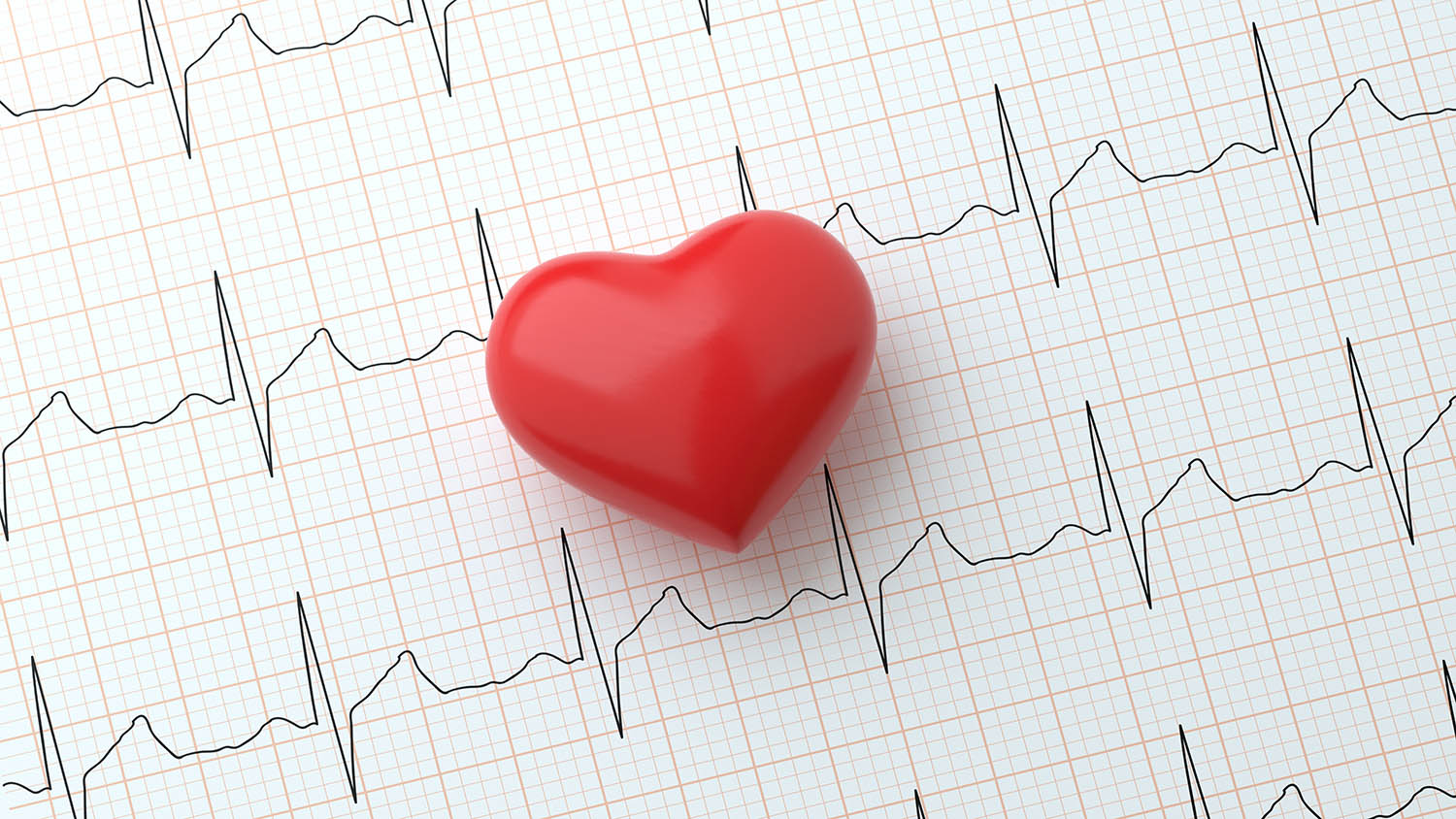6 Lifestyle Changes to Improve Your Heart Health
February 6, 2023
By: David Smith, MD
Categories: Cardiovascular Disease
While you may not have power over every facet of your health, there's a lot you can control. Simple lifestyle changes can have a profound impact on your well-being, particularly when it comes to heart health.
Heart disease remains the number one cause of death for men and women in the United States.
I have been a cardiologist with Tallahassee Memorial HealthCare (TMH) and Southern Medical Group since 1989. In that time, I have seen wonderful innovations and evolutions in heart care, including bypass surgery, coronary artery stents, surgical valve replacement, transcatheter aortic valve replacement (TAVR), mitral valve repair and biventricular automatic implantable cardioverter defibrillators (AICD). We've also developed remarkable medications for chronic conditions such as congestive heart failure.
But as the healthcare industry advances, the general health of Americans continues to decline, largely due to poor lifestyle choices. Causes of death include lack of proper nutrition, cigarette smoking, obesity and risks that stem from obesity.
Chronic diseases caused by obesity are diabetes, hypertension and hyperlipidemia, all of which have been on the rise.
We are becoming a population with coexisting medical conditions, dependent on multiple medications, awaiting our next procedure. While these resources are often necessary, and represent tremendous advancements in heart care, we must not forget the powerful role lifestyle medicine places in wellness – both to prevent illnesses and help heal them.
In 2017, I discovered a group of committed physicians and healthcare workers trying to reverse the upward trend in negative effects stemming from poor lifestyles. The American College of Lifestyle Medicine is devoted to using therapeutic lifestyle intervention as a primary modality to treat chronic conditions, including cardiovascular diseases, type 2 diabetes and obesity.
Lifestyle medicine physicians use evidence-based prescriptive lifestyle changes to treat the causes of disease, not just the symptoms. When you adopt lifestyle changes, chronic conditions can be treated and often reversed. Eighty percent of the conditions I see and treat have their origin from poor lifestyle choices and habits. Therefore, 80% of our treatment should be directed toward lifestyle changes.
There are six key lifestyle modifications you can make to improve your heart health.
1. Consume a Balanced, Nutritious Diet
One of your focuses in nutrition should be a whole-food, plant-predominant eating pattern. You should limit processed food and restaurant fast food, leave out unnecessary sugars and reduce your intake of meat, dairy and cheese.
When it comes to seasoning your food, reduce salt intake and substitute it with other seasonings, spices and herbs.
To create a healthy lifestyle, you should increase your nutrient and fiber intake through fruits and vegetables. Plants can also give you an adequate source of protein through whole grains, beans, lentils, seeds and nuts.
The 2020-2025 Dietary Guidelines for Americans promotes the above suggestions. The same suggestions are seen in anti-hypertension diets like DASH or a Mediterranean diet.
2. Get Adequate Physical Activity
I'm sure you've heard this before but it's true – physical activity is imperative to achieving a healthy lifestyle and heart.
According to the Centers for Disease Control & Prevention (CDC) and the Physical Activity Guidelines for Americans, we should get at least 30 minutes of exercise at least five days a week (150 minutes a week).
Exercise may look different for everyone. Here five types of activities to help you get started:
-
Incorporate movement throughout your day. Try a standing desk or take a daily walk on your lunch break.
-
Mix aerobic activity such as walking and biking with strength building, like using resistant weights or stretch bands.
-
Work on symmetry and balance. Make sure to exercise both sides of your body evenly. Don't ignore your core – it's key for balance.
-
Incorporate stretching or yoga into your fitness routine. Regularly stretching your muscles helps prevent injury.
-
Use a foam roller to help relieve muscle tightness, soreness and inflammation, and increase your joint range of motion.
Pliability of muscles is important to prevent injury or rehabilitate from injury. Research shows that a 12-week stretching regimen improved blood flow, lowered blood pressure and decreased stiffness of arteries. The benefit of good blood flow is less damage to your heart's artery walls and lower risk for heart attacks and strokes.
Are there barriers in your life preventing you from getting the physical activity you need? Read advice from our Premier Health & Fitness Center team to get you back in the game and sign up for your membership today!
3. Prioritize Good, Restorative Sleep
Exercise and eating right aren't the only things that impact your heart. Getting the right amount of sleep plays an important role in overall health and wellbeing.
Combining a healthy diet, consistent exercise and low stress can help you get restorative sleep that is essential for good cardiovascular health.
To achieve good sleep, the CDC advises people to:
-
Go to bed and wake up at the same time every day, weekends included.
-
Sleep in a dark, quiet place set at a comfortable temperature.
-
Ban electronic devices from the bedroom. These can interfere with sleep.
-
Avoid caffeine, alcohol and large meals before hitting the pillow.
-
Exercise. Physical activity during the day makes it easier to fall asleep that night.
Managing sleep conditions like sleep apnea is key to having a healthy heart. Untreated sleep apnea can cause heart diseases like atrial fibrillation (AFib), a sometimes-life-threatening disorder that can lead to stroke.
4. Reduce Stress
Stress can look different for everyone and impact people in different ways. How you react to stress can lead to a wide variety of health problems, which is why it's important you know what to do about it.
Try these strategies for managing stress in your day-to-day life.
-
Create an attitude of gratitude. Studies have shown that feeling thankful can improve sleep, mood and immunity. Gratitude can decrease depression, anxiety, difficulties with chronic pain and risk of disease.
-
Look at every day as a new opportunity.
-
Be kind. Evidence shows helping others can reduce stress and improve mood, self-esteem and happiness.
-
Be present. People who live in the moment tend to be happier and more relaxed.
-
Remember that each success starts with a first step. You're more likely to accomplish your big goals by taking smaller, manageable steps.
-
Surround yourself with positive people.
5. Avoid Risky Substances
One of the best things you can do to boost your heart health is limit the substances you put into your body, meaning:
-
No smoking. Quitting smoking is the single biggest lifestyle change you can make to improve your heart health.
-
Limit alcohol intake. Drinking too much alcohol can cause dehydration and heart issues.
-
Separate from people using risky substances. Being around likeminded individuals will help reinforce these lifestyle changes.
Your heart and blood vessels can be damaged by the chemicals in tobacco. Smoking cigarettes reduces the oxygen in your blood, leading to increased blood pressure and heart rate due to the heart working harder to supply enough oxygen to the body and brain. The good news is that in as little as a day after quitting, the risk of heart disease starts to drop.
6. Form Positive Social Connections
Research shows that people who are well connected socially are happier and healthier. Positive social connections help to lower anxiety levels and lessen depression or severe mental illness, which in turn lower your risk of heart disease.
Loneliness is associated with a 27% increased risk of heart disease in people over 50.
Another report shows people with richer social connections generally live longer and recover more quickly from heart attacks and other health setbacks.
Participating in clubs, neighborhood groups, religious communities, sports or hobbies can be a good way to increase your connections with people who share your interests.
Making these relatively simple lifestyle changes can have drastic impacts on your heart health and increase your longevity. Even if you have heart disease, these changes can help minimize the damage to your heart and keep you living as happy and healthy as possible.
If you do expert heart care, rest assured you have the region's most advanced and comprehensive heart team here at TMH to support you every step of the way: Find a doctor.



